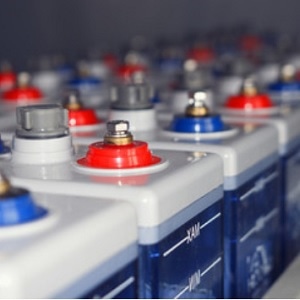Jul 23 2019
Researchers from Skoltech Center for Energy Science and Technology, IPCP RAS and D.I. Mendeleev Russian University of Chemical Technology have created a new polymer cathode material for ultrafast metal-ion batteries with superior characteristics. The results of this work were published in the Journal of Material Chemistry A.

Urgent Need to Develop Electrochemical Energy Storage Technologies
In recent decades, world energy consumption has been increasing significantly due to population growth, industrialization and the development of household appliances and electronics, with a particular increase in the number of mobile devices and electric vehicles. There is therefore an urgent need to develop electrochemical energy storage technologies and devices.
Despite the fact that lithium-ion batteries based on inorganic layered oxides dominate the market, further upgrading their performance is difficult. This problem can be solved by the application of organic compounds as cathode materials. Some of their advantages, on which there should be an emphasis, are high energy density, charge/discharge rate capability and resistance to mechanical deformations.
High Environmental Friendliness
Another important advantage is their high environmental friendliness, since organic materials consist of only naturally abundant elements (C, H, N, O, S) and can be obtained from renewable resources. In the absence of heavy metals, their disposal can be carried out by combustion or using other methods for the recycling of household waste. Moreover, the use of organic cathodes means that expensive lithium compounds are no longer required.
Among the numerous projects of Professor Pavel Troshin’s research team, special attention is being paid to cathode materials based on polyphenylamine type compounds, which is one of the most promising classes of organic cathode materials for metal-ion batteries.
New Macromolecules with Higher Energy Density
“Cathode materials based on polytriphenylamine and its analogues described in the literature possess outstanding characteristics in metal-ion batteries. In particular, they demonstrate high discharge potential, cyclic stability, and operate at high charge/discharge current rates. However, their low specific capacities limit the commercialization of this group of materials. Therefore, we created the task to design and study a group of new macromolecules, which potentially have a higher energy density. Some of the compounds, but one in particular, demonstrated an excellent performance while charged and discharged at the current densities of up to 200 C (full charge and discharge takes 18 seconds only, editor’s note). It is important that besides lithium, we also succeeded in assembling sodium- and potassium-ion batteries based on the same material.” – says the first author of the published work, Skoltech PhD student, Filipp Obrezkov.
Thus, the obtained results confirm the significant potential for using organic compounds as cathodes for ultrafast metal-ion batteries. Further development of this project might result in the development of a new generation of battery materials with even higher specific capacity at a high charging rate, and capable of satisfying the future needs of the portable devices and electric vehicles market.